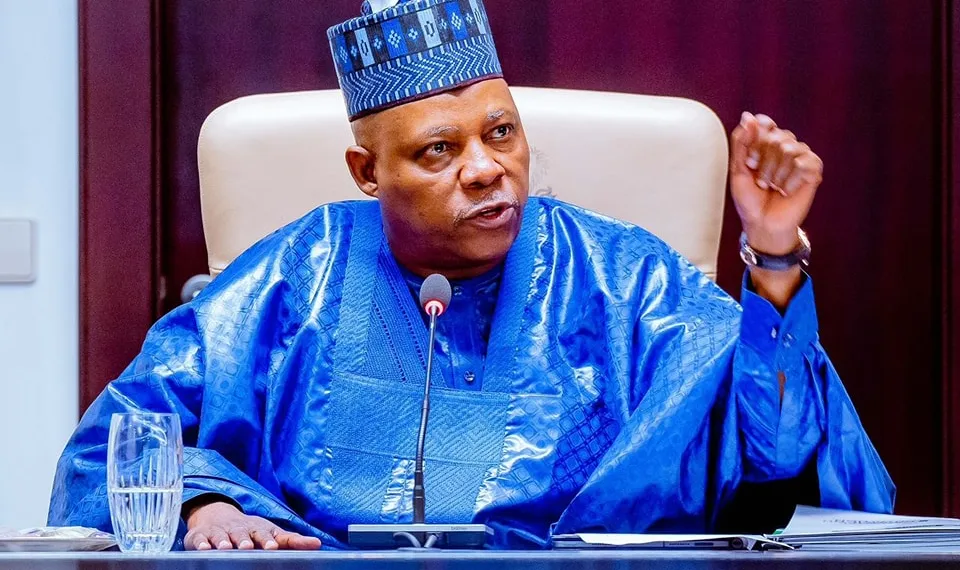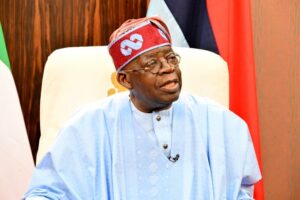Nigeria to launch first National Industrial Manpower Development Policy

President Kashim Shettima
Abdullateef Fowewe
President Bola Tinubu, through Vice President Kashim Shettima, unveiled bold plans for Nigeria’s inaugural National Industrial Manpower Development Policy at the National Industrial Manpower Summit (NIMS) 2025, held at the State House Conference Centre.
The President on Tuesday emphasised that Nigeria’s greatest asset is its people, not its natural resources, noting the urgent need to bridge the gap between educational outcomes and industry demands to unlock the country’s economic potential.
“For a nation with a median age of about seventeen, Nigeria is an incredibly young country. This youthfulness is a gift, but it is also a responsibility. We must make our young people not just a demographic statistic but a central component of our policy-making process,” President Tinubu said in a keynote address delivered by Shettima.
Highlighting human capital as a critical pillar, the President said, “An improvement in human capital, along with infrastructure and sound policy, is the bridge between development and setback in every nation. We cannot afford to divest from our people because the world will not pause to wait for us.”
The President called NIMS “not just a forum for discussion; it is a call to produce actionable recommendations that will form the basis of Nigeria’s first-ever National Industrial Manpower Development Policy. I assure you that this administration will review, adopt, and implement viable proposals with urgency.”
He further stressed the need to unite education and industry stressing, “Our mission is to align the education and training of our young people, and indeed the larger workforce, with the needs of industry. We must reverse the mismatch between what our institutions produce and what our economy requires. This cannot be realised unless we foster robust collaboration between the public and private sectors.”
Addressing the challenges posed by rapidly evolving technologies, the President warned, “We risk widening the skills gap if we fail to prepare adequately for the demands of the new technological order.”
He urged for an industrial skills database, sector-specific manpower roadmaps, and the elevation of vocational and industrial training to a status of dignity and opportunity equal to other professions.
“This summit is a call to produce actionable recommendations. Let us commit to transforming the way we think about manpower, work, and the future of Nigeria’s industrial economy,” he concluded.
Supporting the President’s vision, Minister of State for Industry Senator John Owan Enoh described the summit as a historic moment, saying, “We stand at a crossroads where Nigeria elects whether to remain a nation of vast potential, often admired but unrealised, or to step forward as a nation whose productivity matches its promise.”
Minister of Industry, Trade and Investment, Dr Jumoke Oduwole, remarked that national manpower development is pivotal to attracting and retaining domestic investment and accelerating Nigeria’s industrialization. She noted the summit as “a timely opportunity to deepen our conversation and lay out a bold actionable strategy for a more resilient economy, anchored in President Tinubu’s Renewed Hope Agenda.”
Labour Minister Alhaji Mohammed Maigari Dingyadi emphasised unity and collaboration, urging stakeholders to “depart from individual efforts to more robust and collaborative efforts to drive this critical mandate.”
Senior Special Assistant to the President on Industrial Training and Development, Adamson Oluwatoyin, called NIMS 2025 a turning point aligned with the President’s vision, stating, “Without skilled, adaptable and innovative people, the country’s industrial dream will remain unrealized.”
Dr Afiz Ogun Oluwatoyin, Director General of the Industrial Training Fund, commended the President’s governance approach in strategically appointing leaders to tackle industrial manpower challenges with new perspectives.




